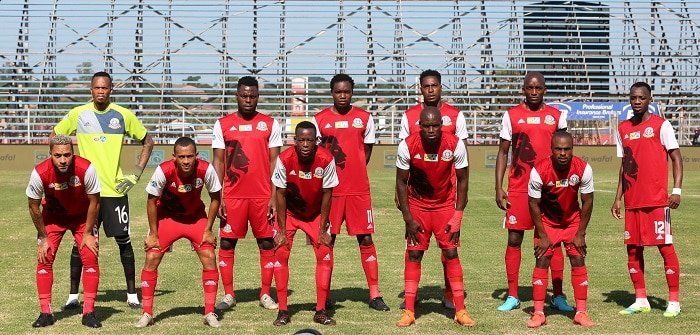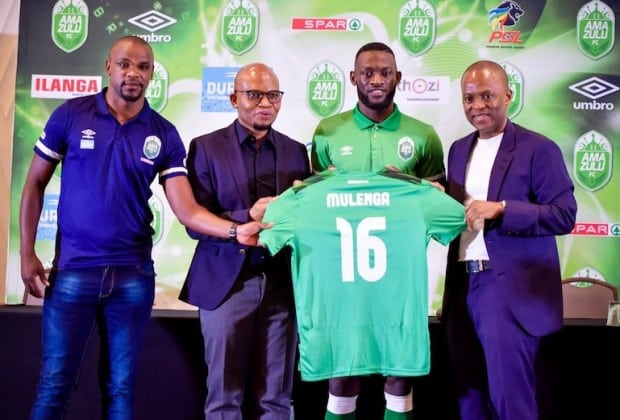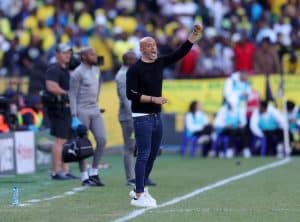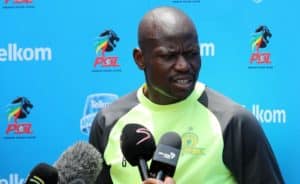Despite buying Bidvest Wits’ top-flight status almost four months ago, Tshakhuma Tsha Madzivhandila (TTM) kicked off their first campaign by naming just three substitutes for the MTN8 quarter-final against SuperSport United. Their lack of preparation shines a light on the failings of South African football, writes DEAN WORKMAN.
TTM announced their purchase of Wits on 13 June before the end of the 2019-20 season.
The club have since had four months to finalise their backroom and playing staff, but have seemingly faced many obstacles in preparing the team for the top flight.
🚨 It is official 🚨
We are officially a PSL team
Tshakhuma Tsha Madzivhandila Football Club has completed the sale of Bidvest Wits with all its players pic.twitter.com/JWmwkdYGC1
— TTM-FC Official Page (@TTM_Original) June 13, 2020
First, Owen Da Gama was linked to the head coach job but talks fell through before the sale of his old club, Highlands Park.
Then Zimbabwean coach Norman Mapeza was brought in and he even conducted training sessions for three weeks, but was not contracted by TTM and eventually walked away from the job.
Speaking to the Sowetan from Zimbabwe, Mapeza said he thought he couldn’t help the team anymore with the season yet to start. ‘This is a new club, and after what I saw I said I can’t help anymore in the three weeks I have been here,’ Mapeza said.
‘New players were coming, and I didn’t know much about the levels of their fitness. It was going to be difficult for me because I didn’t know much about when was the last time they played football. Some, I understand, they played in the bio-bubble, some they last played football in March before this Covid-19 outbreak. So, I thought it was going to be difficult to work like that with the team.
‘I spoke to them. They were aware of my concerns. At least if some other players from the Premier Soccer League were playing regularly, it was going to be easy for me,’ Mapeza added.
‘Usually in pre-season, you need about six weeks to prepare the team, even eight weeks sometimes. But I had only three weeks, and I said to myself, “Can I make a competitive team?” I thought I could not.
‘I know people will be surprised, but we are football people, and it was my wish to help those guys; at the end of the day, it is a new club. We need to have a foundation.
‘We only started training on October 2, and other clubs have been training from mid-September, and they had five weeks to prepare.
‘You need to make a bold decision as a coach, and I didn’t want to find myself where I would be regretting,’ the former Chippa United coach concluded.
All this coaching drama happened while a pay dispute roared on in the background as some former Wits players did not receive their due payment.
Club CEO Sello Chokoe said the dispute was handled quickly and it was simply a miscommunication. The club then eventually announced the appointment of coach Joel Masutha just three days before their MTN8 clash with SuperSport.
Please tell the owner of @TTM_Original that I place myself at his disposal, free of charge, to edit all press releases BEFORE they are released. We can’t allow this to continue yhini madoda! pic.twitter.com/USVniBBbQk
— Ace Ncobo – Spot On (@AceNcobo) October 18, 2020
Then, on Saturday, TTM became the laughing stock of South African football as they pitched up with just three subs for the game which they eventually lost 3-2 at Thohoyandou Stadium.
Masutha, after the game, apologisied to all stakeholders, saying that had it not been for their three-sub impropriety, Tshakhuma could have won the game.
‘I would like to apologise to the football fraternity, MTN, PSL and everyone who loves the game. Yes, we would never try to point fingers at other people. Had we sorted our admin on time, probably we’d have won the match, so my apologies to the soccer fraternity for that matter,’ said Masutha.
Choke then explained – in a poorly worded and unprofessional news release – why the club failed to field a full squad, citing administration issues with securing deals and the registration of players.
The depleted team came as a shock after the club had announced a number of new signings, which included former Orlando Pirates striker Augustine Mulenga. The Zambian, though, wasn’t in the squad and was then confirmed as an AmaZulu player on Monday.
‘I was also shocked to see my name there, I didn’t know about that announcement,” Mulenga explained at AmaZulu’s media conference on Monday.
‘They did approach me but I told them I need time, I didn’t agree anything with them,’ he added.
These issues don’t seem to faze owner Masala Mulaudzi, though, who says that any criticism will only serve to make them better.
“I’m not really concerned about the reputation because the more you criticise us out there, that’s when we fix our house,” @TTM_Original boss, Masala Mulaudzi.#FARPost pic.twitter.com/N6STSprdvU
— FARPost_ZA (@FARPostZA) October 16, 2020
Whichever way you look at it, the sale of a former league winner with a 99-year history to a side clearly not ready for top-flight football is an indictment of a failing system for the buying and selling of status. This is holding South African football back.






